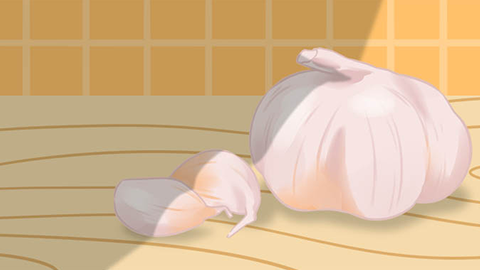Can you eat garlic if you have a mouth ulcer?
Garlic is not recommended during the acute phase of oral ulcers or when ulcerated areas are clearly present. Small amounts of cooked garlic may be consumed in the later stages of healing, but raw garlic should be avoided. If you experience any physical discomfort, it is advisable to seek medical attention promptly and follow professional medical guidance for treatment.

Garlic contains allicin, which is highly irritating—especially raw garlic, where concentrations of irritants are higher. During an oral ulcer outbreak, the mucosal layer at the ulcer site is damaged and nerve endings are exposed. Consuming raw garlic allows these irritants to directly contact the wound, causing intense pain and potentially worsening mucosal inflammation, thereby delaying the healing process.
Even cooked garlic, although its irritant properties are reduced by high-temperature cooking, still contains small amounts of irritating compounds. If the ulcer is in the acute stage with obvious redness, swelling, and pain, consumption may still increase discomfort. Only during the later healing phase—when the wound is gradually shrinking and pain has subsided—can small amounts of cooked garlic be used as a seasoning in mild dishes, taking care to avoid direct contact with the ulcerated area.
In addition, pickled garlic contains salt or acidic substances that can also irritate the ulcer site; therefore, it is not recommended at any stage of the ulcer. During episodes of oral ulcers, diet should primarily consist of mild, easily digestible foods to support wound recovery. If ulcers persist without healing, prompt medical evaluation is necessary.




